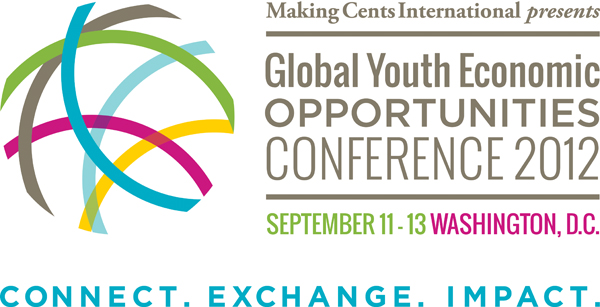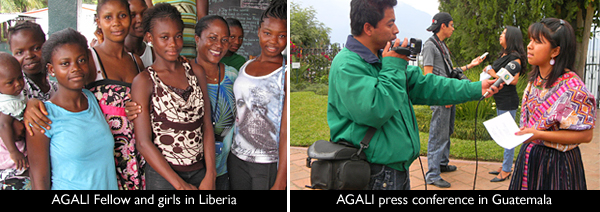Youth Economic Opportunities Conference: Can advocacy lead to economic security for adolescent girls?
2012 Youth Economic Opportunities Conference: Blog #2
 September 11-13, 2012 | Washington, DC
September 11-13, 2012 | Washington, DC
This blog post was written by Emily Teitsworth, Program Manager of the Adolescent Girls’ Advocacy & Leadership Initiative (AGALI), a program of the Public Health Institute in Oakland, California. She will present at the Global Youth Economic Opportunities Conference at 11am on Wednesday, September 12, 2012 within the gender and adolescent girls track. Other tracks at the conference include youth inclusive financial services, workforce development, enterprise development, and monitoring and evaluation.
Can advocacy lead to economic security for adolescent girls? Lessons learned from the Adolescent Girls’ Advocacy & Leadership Initiative
“It takes two fingers to crush a louse” – Malawian Proverb
“One cent cannot cause noise, but a bag of money…” – Liberian Proverb
The transformative potential of advocacy resides in the strength of partnerships and in the ability of many small voices to speak together and be heard by the powerful. Recognizing the wisdom in proverbs like these from Malawi and Liberia, the Adolescent Girls’ Advocacy & Leadership Initiative (AGALI) builds the capacity of civil society leaders with the goal of helping them to speak out with one voice on the critical issues affecting adolescent girls in their countries. AGALI Fellows in Guatemala, Honduras, Liberia, Malawi, and Ethiopia collaborate to transform adolescent girls’ lives by advancing their human rights, improving their health, expanding their educational and economic opportunities, and empowering girls to advocate for their own needs.
We have learned over the last four years of implementing AGALI that most initiatives targeting adolescent girls target the individual level, focusing on improving the lives of small groups of girls. While this work is important, those who provide girls with direct services are also often uniquely positioned to effect girl-friendly and sustainable change at a systems level. AGALI has demonstrated that with targeted support and capacity building, direct service providers can successfully transition to become respected advocates on a range of issues of critical importance to girls’ empowerment. Our results also indicate that empowering adolescent girls to advocate for their own needs can, with relatively little programmatic investment, have impacts on the local and national laws, policies, and budgets that determine girls’ access to economic opportunities.

Among other achievements, AGALI has supported successful advocacy campaigns that resulted in:
- Passage of two national ballot initiatives in Guatemala, establishing the Day for Teen Pregnancy Prevention, and the expansion of teen pregnancy prevention programs, including access to information and services.
- Launch of the Adolescent Girls’ Advocacy Network (AGANET) in Malawi, a nationwide coalition of civil society organizations and multilateral partners advocating to improve girls’ lives.
- Creation of innovative bylaws in Malawi implemented by village chiefs and traditional authorities that prohibit early marriage and provide penalties for men engaging in the practice.
Drawing on the lessons learned from AGALI’s partner organizations in Central America and Africa, my presentation at the Global Youth Economic Opportunities Conference focuses on advocacy and its role in a systems-change approach to girls’ economic empowerment. For more information on AGALI, please visit us at www.agaliprogram.org


